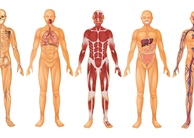Opinion:With REAL ID, Privacy Concerns for the Transgender Community
By
2010, Vol. 2 No. 02 | pg. 1/1
KEYWORDS:
The level of data collection mandated by the REAL ID Act of 2007 should raise concern for all American citizens who enjoy their privacy, because it mandates unprecedented levels of data collection and an equally unprecedented level of nationwide access to that data (EPIC, 2007, 14). There are a some sectors of the population, however, that are particularly at risk from the expanded collection and accessibility of personal information. EPIC provides one example: survivors of family violence, who could be easily tracked if an abuser gained access to any DMV or law enforcement database (2007, 15). Another such group is transgender people, who would be placed at a high risk of harassment and assault if the REAL ID regulations were implemented. According to the National Center for Transgender Equality (NCTE), one of the main problems with REAL ID is the collection and retention of the identity documents required to obtain a REAL ID (2009). State DMVs would be required to verify the accuracy and validity of these documents, and then maintain a digital copy attached to an individual’s electronic license record. This presents a security risk for many transgender people, as the documents required to obtain a license can often reveal their personal medical history to anyone accessing their records. For example, Ohio does not allow a person to change the gender marker on their birth certificate. A transgender person born in Ohio would therefore have to provide the DMV with the birth certificate showing an originally assigned gender and some kind of letter establishing that this was no longer accurate. Both of these documents would be stored by the DMV in a nationally accessible database, making it clear to anyone who cared to look that this individual was transgender.The problem of “outing” people as transgender through their records is not limited to those individuals who cannot get well-corrected versions of their identity documents. Even a person with perfectly reissued versions of their identity documents will have their original documents on file in the DMV’s computer system, and there is nothing to say whether the new documents would replace or supplement existing versions. If the latter is the case, it will likewise "out" transgender people to anyone with access to the DMV system. While the Providing for Additional Security in States’ Identification Act (PASS ID), S. 1261, addresses some of the issues in REAL ID, it still requires electronic storage of sensitive identity documents – for longer periods than REAL ID – and fails to provide privacy protections to ensure that transgender people are not outed to police at traffic stops or to creditors running a credit check (NCTE, 2009). In contrast, the REAL ID Repeal and Identification Security Enhancement Act, H.R. 3471, completely repeals the REAL ID provisions and returns to “negotiated rulemaking” with input from privacy, immigration, and constitutional law experts. It would also require encryption of personal information, preserve state-level privacy protections, and does not require the storage of identity documents (Id.). The current provisions go too far in compromising the privacy and safety of transgender people, and all American citizens.
Electronic Privacy Information Center. (2008). REAL ID Implementation Review: Few Benefits, Staggering Costs. Retrieved from http://epic.org/privacy/id-cards/epic_realid_0508.pdf National Center for Transgender Equality. (2009). The PASS ID Act. http://www.transequality.org/Resources/PassID.pdf Suggested Reading from Inquiries Journal
Inquiries Journal provides undergraduate and graduate students around the world a platform for the wide dissemination of academic work over a range of core disciplines. Representing the work of students from hundreds of institutions around the globe, Inquiries Journal's large database of academic articles is completely free. Learn more | Blog | Submit Latest in Opinion |















